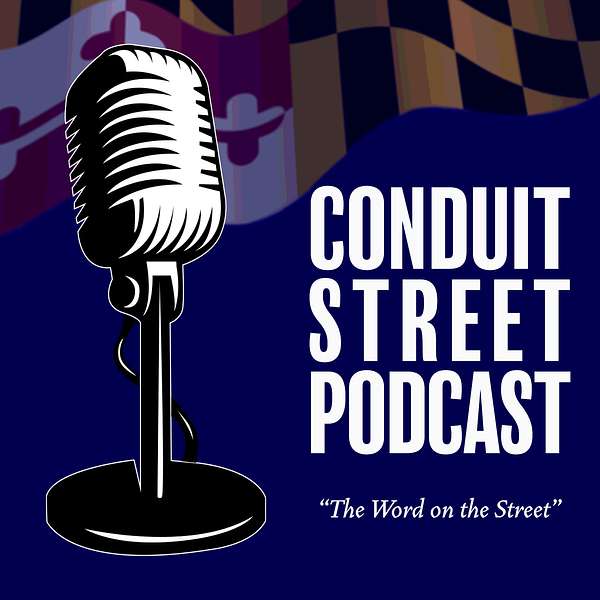
Conduit Street Podcast
From the halls of the State House to the heart of county government, the Conduit Street Podcast breaks down the decisions shaping Marylanders’ daily lives. Produced by the Maryland Association of Counties (MACo), this weekly podcast offers smart, accessible insights on the latest state and local policy — with counties always at the center.
Explore how legislation, executive actions, and agency decisions affect essential public services like education, infrastructure, public safety, health, and other core functions that matter most to Maryland residents. With special guests from across the state and the occasional world-famous dad joke, Conduit Street keeps you informed, engaged, and ready for what’s next.
Whether you’re a policymaker, a public servant, or just policy-curious, this is your front-row seat to Maryland’s political landscape.
Conduit Street Podcast
All Aboard: Transportation Commission Leaves the Station
On the latest episode of the Conduit Street Podcast, Michael Sanderson and Dominic Butchko discuss transportation funding and the significance of the Maryland Commission on Transportation Revenue and Infrastructure Needs, which is charged with recommending improvements to existing transportation revenues, investment decisions, and more.
For decades, the State supported a balanced means to maintain its transportation infrastructure. The bulk of transportation revenues – mainly motor fuel and vehicle titling taxes – have been split between the State (for its consolidated Transportation Trust Fund, serving multiple modes) and local governments (who own and maintain roughly 5 of every six road miles across the state). For decades, this split served all parties effectively.
The State faced a mid-year budget crisis during the Great Recession in 2009. As a result, the Board of Public Works adopted a 90% reduction of the local distributions of these Highway User Revenues and a roughly 40% reduction to Baltimore City’s allocation (the largest by far to any jurisdiction). Since then, recession-driven cutbacks in many service areas have been fully or largely restored. This is not the case with Highway User Revenues – they remain far behind historic levels, even after the State has enacted a substantial transportation revenue increase.
Unfortunately, the Great Recession HUR cuts, coupled with new obligations toward school funding, leave little room for additional investment in roads, not to mention counties are preparing for an uncertain economic future and talk of recession.
In addition, the push toward electric vehicles will likely exacerbate the issue. Cars and trucks use less gas or run on electricity, shrinking funds for roads and bridges. But electric vehicles still contribute to road wear and tear, so states and local governments need money to maintain them.
State policymakers are considering other ways to pay for Maryland’s transportation infrastructure. One growing policy trend is applying a separate registration fee for hybrid or electric vehicles.
However, special registration fees are not the only mechanism to lower gas tax revenue and promote equity among drivers. After exploring several options, such as a tire tax, a battery tax, and expanding gas taxes and registration fees, Oregon settled on a per-mile charge as the fairest and most accurate way to pay for state roads and bridges.
An interim commission report is due to the Governor and legislature on or before January 1, 2024, with a final report on or before January 1, 2025. Dates, times, agendas, updates, and other information will be posted on the commission website at www.mdot.maryland.gov/commission.
The Conduit Street Podcast is available on major platforms like Spotify, Apple, Google, and anywhere else you get your podcasts. Episodes are also available on MACo's Conduit Street blog.
Useful Links
Previous Conduit Street Coverage: MD Commission on Transportation Revenue and Infrastructure Needs Announces Roster, Sets First Meeting Date